"Lenchen im Zuchthause"
Hello Lenchen friends!
After I found the long sought-after treatise "
Lenchen's Abschied", I announced here in the forum about a fortnight ago that I would be working hard to track down the lost original edition of "
Lenchen im Zuchthause" and then publish the results here.
Well, I am still a long way from the final results, but I have achieved so much in the meantime that I would like to give you an interim report today:
1.)
Was mich zunächst sehr ärgerte wegen der nicht nachvollziehbaren Verhalten der DNB (114,- Euro für 42 Scans [von 407 Seiten!], die restlichen Seiten können nur in Leipzig vor Ort am Mikrofilmlesegerät eingesehen werden!), entpuppte sich dann aber als echter Glücksfall: Über einen ungewöhnlichen Weg über Belgien und die Schweiz wurde ich schließlich fündig, was unvergleichlich wertvoller ist als Scans von einem Mikrofiche (von ohnehin fragwürdiger Qualität):
I was able to come into possession of an extremely valuable book, namely the "unaltered reprint of the first edition from 1840"!!!
The book is now in my possession, contains all 407 pages of text, is bound in sturdy parchment book cartboard, head edge covered with gold leaf (Gilt head cut) and in best condition - see images.
It is a so-called subscription edition (probably 500 copies), each copy of which is individually numbered by hand.
A renowned master bookbinder from the bookbindery of Prof. Dr. Mohn in Trier, bookbinder master Mr André Gumprecht, clearly dated the book to the period between 1920 and 1930 after careful examination.
It is therefore certain that it is the following edition:
Title: "Lenchen im Zuchthause"
Subtitle: "Unaltered reprint of the first edition from 1840
Author: Wilhelm Reinhard
Year: 1920
Language: German
Printed by: Malsch & Vogel*, Karlsruhe
Publisher: (presumably) in Commission of the Groos'sche Buchhandlung A. Bielefeld, Karlsruhe
Text font: Book Antiqa Serif
Foreword by the author: yes
Signed by the author: no
Pages: 407
Images/Illustrations: none
Binding: Parchment on cardboard
Spine: vellum with handmade gold embossing
Paper: fine laid paper ("Büttenpapier")
Slipcase: none
Book jacket: none
Cut decorations: Gilt head edge, uncut front edge
Format: 8°
Weight: 684 gr
Condition: 1 A, no damage (unread book)
Addition: printed for subscription, edition probably 500 copies
Numbered copy: yes
OCLC number: 72036836
(* Note on the printing company Malsch & Vogel in Karlsruhe:
Unfortunately, even in libraries, archives and book registers, one repeatedly comes across the incorrect spelling "Maisch & Vogel". This is definitely wrong; the name of the company founded in 1838 was "Malsch & Vogel" after its founders Jakob Malsch and Johann Georg Vogel).
The book was still "virgin", i.e. unread, which was clearly shown by the following circumstance: 19 of the 205 double-page printed folded sheets had not yet been cut open (see photos), probably due to incorrect processing by the bookbinder at the time, so that I carefully did this myself after bookbinder André Gumprecht showed me how to do it professionally.
In the meantime, the entire book has been scanned twice on two professional machines in the Scanroom at the University of Trier and is currently being processed in Trier and in New York (!):
I have found valuable help and support for the entire editing of the work in the dedicated and experienced member
@Tiredny, who will also be responsible for the entire translation into English.
[At this point, a big thank you to you for the fantastic co-operation, Tired!]
2.
I was able to "dig up" 5 personal files in the Baden General State Archive in Karlsruhe on the life and work of the hitherto largely unknown author, Wilhelm Emanuel Reinhard (1776 - 1858), from which I was able to obtain extremely important and highly interesting information on the person of the jurist and Baden State Councillor and member of the Baden legislature.
A early Reinhard's report on conditions in Baden's penitentiaries in the first half of the 19th century and two biographical writings by him also gave me a deep insight into his thoughts and work, which ultimately led to "
Lenchen im Zuchthause" during his retirement.
3.
While Tired and I are working on the publication of Lenchen's unabridged original story (correcting OCR reading errors / editing / formatting etc.) and Tired will later take over the stylish translation into English, I am working on a detailed review of the book and its author, which will put an end to all speculation and unanswered questions (is it an aesthetic novel? Is the story fictitious? Did Lenchen and the letters really exist? Is the ending of the story in the abridged editions embellished but in fact exactly the opposite? Why was the book censored and confiscated in the end of 1840, just a few months after publication? What is in the censored or deleted text passages? And much more...) should be answered.
In this context, I will also devote special space to an in-depth examination of the corporal punishment of women (and in particular the reasons for this) in German penitentiaries between 1800 and the first abolition of corporal punishment in 1848. After all, this is precisely what emerges from the censored text passages, so much can already be revealed.
In a few weeks I will report here on the final results and present my book review.
Tired will present his work himself in due course, and I don't want to pre-empt that or speak for him.




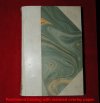
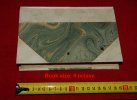

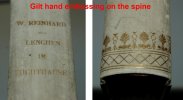

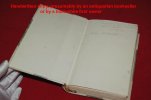
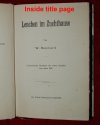
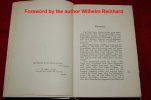
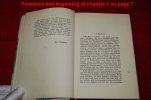

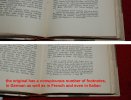
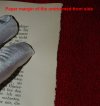
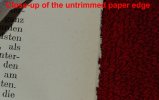
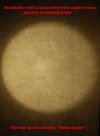
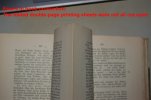
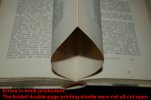
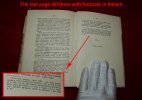

 .
.




